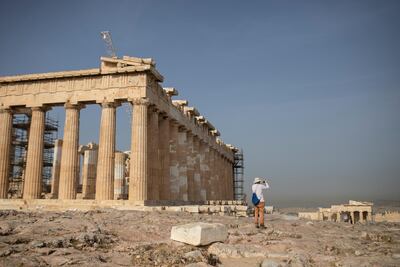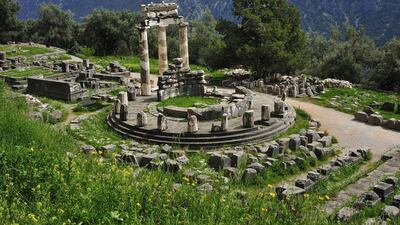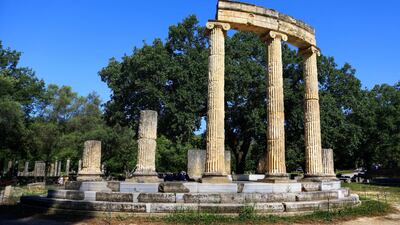Greece on Monday reopened the Acropolis in Athens, bringing to an end the longest time that the landmark has been closed to the public since the Second World War.
In a symbolic step on the country’s road towards lifting its lockdown restrictions, the complex of ancient Greek temples and monuments was reopened by President Katerina Sakellaropoulou and Culture Minister Lina Mendoni.
The world-famous Acropolis, along with all other open-air archaeological sites in the country, were closed off two months ago as part of measures designed to limit the spread of the novel coronavirus.
Visitors to the site will be asked to stay 1.5 metres apart and encouraged to wear masks, which will be compulsory for staff.
Greece is dotted with the architectural remains of Antiquity including temples like the Parthenon, which looms over the capital from the centre of the Acropolis, and the sanctuary at Olympus, the cradle of the Olympic Games.
Protective screens have been put up and the sites have been disinfected, the culture ministry said.
The lockdown measures imposed as Greece’s coronavirus outbreak worsened prompted immediate fears for the tourism sector, a vital part of the Greek economy and one which had already been hurt by travel restrictions and concern over the disease.
Greece last year welcomed more than 33 million visitors, but hotel occupancy rates in the Greek capital have nosedived to only around 10 per cent, compared with around 70 per cent at the same time last year.
The Acropolis alone attracted 2.9 million visitors in 2019.
A Unesco World Heritage Site, the ancient temple complex is made up of the remains of several buildings built mainly in the fifth century BC.
The Parthenon at its heart remains an enduring symbol of Western civilisation and has survived thousands of years of change and turmoil.
First constructed as a temple to the Greek goddess Athena, the building became a Christian church in the sixth century before being converted into a mosque after the Ottoman conquest in the early 1460s.
The building was partially destroyed in 1687 when an Ottoman ammunition dump exploded while the Acropolis was under siege.
Marble sculptures taken from the building in the 1800s now reside in the British Museum and are known as the Elgin Marbles.
With 163 deaths from the virus, Greece began easing lockdown measures this month with an eye to salvaging the vital tourism season.
The country has suffered less from the pandemic than many other European nations and restaurants are due to resume trading from May 25, a week earlier than originally planned.
Ms Mendoni praised the country’s response to the pandemic and said it allowed for the gradual reopening of key tourist sites.
"This is a precious achievement, it allows for the resumption of the tourist season which will be extended to make up for" lost time, she said ahead of the reopening.
Athens nonetheless expects the economy to contract nearly five per cent this year, in part due to the loss of tourism income from key markets like Germany, Britain and the United States.







